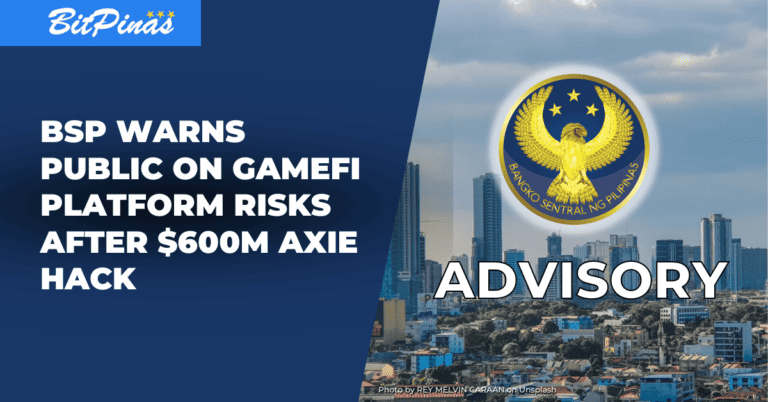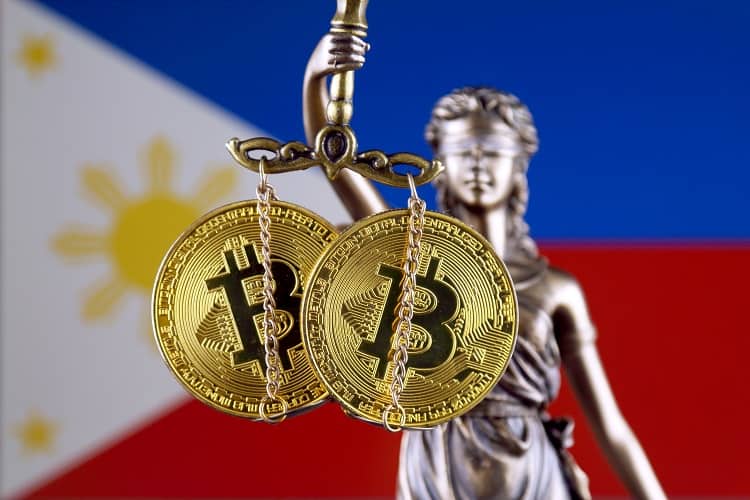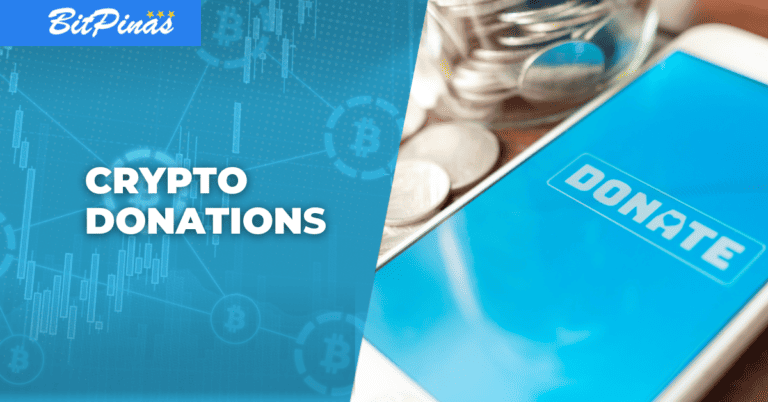2020 Cryptocurrency Regulation in the Philippines Recap
A key highlight for 2020 is the vigilance of the Securities and Exchange Commission (SEC) in issuing advisories and cease and desist order, and in taking other enforcement actions against cryptocurrency-related investment scams, Forsage being the largest and most high-profile among them.

Compared to 2018 and 2019, 2020 is a relatively slow year in terms of Philippine regulatory developments on cryptocurrencies and blockchain. This is understandable considering that the COVID-19 pandemic has compelled financial regulators to focus their attention on macroprudential measures that will allow continuous financial activities and flow of credit to the economy.
A key highlight for 2020 is the vigilance of the Securities and Exchange Commission (SEC) in issuing advisories and cease and desist order, and in taking other enforcement actions against cryptocurrency-related investment scams, Forsage being the largest and most high-profile among them.
Securities and Exchange Commission
The SEC’s draft Rules for Digital Asset Exchange and draft Rules for Initial Coin Offering are still pending. There are no official updates on the progress of the consultation phase that started in 2018. The bullish market which is projected to continue in 2021 and the vibrancy and exuberance associated with it might offer the impetus that will urge the SEC to finalize these proposed rules.
In 2020, the SEC demonstrated its vigilance in issuing numerous public advisories in relation to cryptocurrency-related investment scams. For instance, the SEC issued an advisory in April 2020 and warned the public against Blockxperts, Inc.’s Cryptopeso scheme and “PHPc Staking Program”. The scheme required the investment of at least PHP2,000.00 from its members plus the activation fee in the amount of PHP500.00. The amount invested will be converted into Cryptopeso (PHPc), which will be staked and locked in for three, six, 12, or 24 months, at the option of the investor.
Subsequent to the public advisory against Cryptopeso, the SEC issued another advisory in July 2020 against Forsage for enabling unregistered securities to be offered in the Philippines. In September 2020, the SEC also issued a cease and desist order (CDO) against the individuals associated with Forsage. According to the SEC, Forsage’s smart contract-enabled “Crypto Earning Program” partakes of the nature of securities where investors do not need to actively exert effort other than to passively invest or place money in its scheme to earn profit. The SEC also characterized Forsage as a “Ponzi Scheme where monies from new investors are used in paying ‘fake profits’ to prior investors and is designed mainly to favor its top recruiters and prior risk takers.” The fact that Forsage claims to be a decentralized platform that runs through the use of smart contracts did not matter in the SEC’s “investment contract” analysis.
The SEC also issued public advisories against other investment scams such as BitThroughCash / Bit2Cash (January), Munics (March), Bitrade (March), Bitcoin Revolution—notorious for employing fake celebrity endorsements (March and again in June), Cryptec and Point Place (April), The Billion Coin or TBC and Kris Kringle (April), My Profit Robot (April), Nexus P Capital (April), Crypto Invest With Us or CIWU (May), Ethmarket LLC PH (June), Daily Passive BTC Ltd (June), Btxtraders.com (July), Million Money (July), Bitfinanceinvestment.Ltd (August), Mining City (September), Bitcoin Digital (October) Coinmax.ph (November), Sharelink Ads and Cryptotrading or SACT (November), and CubeBit 2.0 (December).
Bangko Sentral ng Pilipinas
As of December 2020, there are now 17 “Virtual Currency Exchanges” registered with Bangko Sentral ng Pilipinas (BSP). The BSP approved seven new VCEs in 2020, while three operators were delisted for undisclosed reasons.
Also since this year, the BSP started adopting the updated nomenclatures (e.g., VA and VASP) employed by the Financial Action Task Force (FATF) in referencing cryptocurrency activities and actors. The BSP is constantly evolving its regulatory framework for new types of cryptocurrency-based financial intermediaries, consistent with the guidance prescribed by the FATF for Virtual Assets (VA)and Virtual Asset Service Providers (VASP). Indeed in the draft regulation circulated for comments by the BSP earlier this year, the proposed guidelines that will update BSP Circular 944 was entitled “Guidelines for Virtual Assets and Virtual Asset Service Providers.”
Most of the rules introduced by the proposed VASP Guidelines incorporate established best practices. In fact, we can say from experience that the BSP already expects BSP-registered VCEs to observe these best practices which are being checked during onsite audit. Thus, for those with mobile applications, the security controls should also be able to safeguard the integrity, authenticity and confidentiality of data residing or processed in the mobile platform. Their security framework should also cover the protection of the virtual asset wallets against cyberthreats and other technology risks.
Also according to the proposed rules, BSP-registered VASPs should also put in place necessary security measures and controls in its platform to ensure confidentiality, integrity and availability of data uploaded, stored, processed and transmitted into and out of the system and protect its information technology infrastructure from malware, cyber-attacks and other evolving and emerging threats. Lastly, VASPs should also adopt sound outsourcing mechanisms to manage risks arising from outsourcing, specifically those concerning confidentiality, data privacy, data management, contract management, cybersecurity, performance monitoring and business continuity, among others. In all instances where technology is outsourced, say to a cloud service provider, the VASP remains to be ultimately responsible for the performance of the financial service in the same manner and to the same extent as if the VASP was directly performing said activity.
In the proposed VASP Guidelines, the BSP expressly incorporated the “Travel Rule” pursuant to FATF’s Guidance for Virtual Assets and Virtual Asset Service Providers. The jargon reflects the essence of the rule, that is, identifying information must “travel” along with the fund transfer. According to said rule, a VASP that facilitates a virtual asset transfer amounting to PHP50,000.00 or more, or its equivalent, must obtain and hold required originator information and required beneficiary information, which have been verified for accuracy, and submit said information to beneficiary institutions. It must be noted however that the Travel Rule has always applied to all banks and non-bank financial institutions—which includes VCEs which are categorized as money service business (see for example BSP Circular No. 1022 [2019]). Nevertheless, the BSP makes it explicit that this Travel Rule also applies to VASPs to align with the FATF Guidelines.
In a speech by BSP Governor Benjamin Diokno in September 2020, he mentioned that the proposed Guidelines for VASP “is in its final phase.” It can be expected that the new rules will be finally approved within the first and second quarters of 2021.
Proposed Legislations
2020 saw bills proposed in Congress seeking to regulate the use of blockchain technology and to mandate the BSP to issue a central bank digital currency (CBDC).
Just last year, we predicted that another proposal will be put forward for the creation of a blockchain-based digital peso. As we wrote in our 2019 recap of regulatory developments in the Philippines: “(c)onsidering the rising popularity of the subject of Central Bank-issued Digital Currency (CBDC) among central bankers and monetary policy experts, it will be exciting to see another lawmaker resurrect the idea of a “logchain”-based “E-Peso” which was first proposed in Congress as early as 2014.” True enough, in May 2020, Rep. Cua proposed for the creation of the Bangko Sentral Digital Peso (BSDP) that will be powered by a “logchain” through House Bill No. 6646). In essence, Rep. Cua revived the bill filed by Rep. Kimi Cojuangco in 2014, which proposed for the issuance of “E-Peso” (House Bill No. 4914).
Last October, Rep. Joey Salceda filed House Bill No. 7864 proposing for the enactment of the “Blockchain Technology Development Act.” The proposed bill establishes legal definitions for concepts such as blockchain, distributed ledger, cryptographic hash, and smart contract. Further, the bill seeks to confirm the legal enforceability to smart contracts and their admissibility as electronic evidence. Furthermore, the bill seeks to regulate the legal consequences of certain use cases for blockchain technology (e.g. financial services, digital identity, and human development). Finally, the bill intends to promote blockchain and fintech-related economic development in the private sector—designating the National Economic Development Authority to spearhead the effort.
Meanwhile in the Senate, the proposed bill for the Digital Assets Act filed by Sen. Imee Marcos remains pending and there are no official reports on the status of this Senate bill
Prospects
Looking forward, we foresee that a bill will be filed in Congress in 2021 that will propose the amendment of the Anti-Money Laundering Act (R.A. 9160) to include Virtual Asset Service Providers (VASP) among Covered Persons—requiring all VASPs as a statutory policy to observe know-your-client, record keeping, covered transactions and suspicious transactions reporting as well as appointment of AML compliance officer. We see this as a “low-hanging fruit” that the Congress can pass without much debate or controversy, considering that this will only implement the FATF’s 2018 and 2019 recommendations on virtual assets and VASP.
This article is published on BitPinas: 2020 Regulatory Developments on Cryptocurrency and Blockchain in the Philippines





